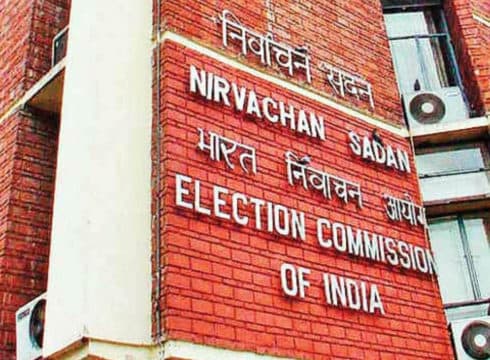Pre-certified political advertising rules will apply to the social media as well
The district and state-level media certification and monitoring committees will have social media expert
Social media giants summoned by parliamentary panel to check preparations for elections
Inc42 Daily Brief
Stay Ahead With Daily News & Analysis on India’s Tech & Startup Economy
As the Election Commission of India announced the poll dates of general election for 2019, it also clarified the role of social media in the elections. The EC has said that the model code of conduct and its pre-certified political advertising rules will apply to the social media as well.
Chief election commissioner Sunil Arora reportedly said that all major social media platforms — Facebook, Twitter, Google, WhatsApp and Share Chat — are committed to accepting only pre-certified political advertisements, sharing expenditure on it with the Election Commission (EC) and adhering to the “silence period” that comes into effect 48 hours before the polls.
“All the provisions of model code of conduct shall also apply to the content being posted on the social media by candidates and political parties,” the EC reportedly said.
It has also reportedly decided to bring the bulk SMSes/Voice messages on phone and election campaigning through social media under the purview of pre-certification of election advertisements, just like electronic and radio advertisements.
For scrutiny, the district and state-level media certification and monitoring committees, which vet all electronic and radio advertisements during the model code period, will now also have a social media expert on board.
It was further announced that candidates will have to submit details of their social media account (if any) at the time of filing of nominations. The expenditure incurred on social media campaigning by them will be included within their limit of election expenditure.
Notably, even payments made to internet companies and websites for carrying advertisements and campaign-related operational expenditure on making creative content, salaries and wages paid to the workers employed to maintain their social media account, will have to be accounted for with the EC.
It is to be noted that the election expenditure ceiling is fixed at INR 70 Lakh for candidates contesting Lok Sabha elections, except in Arunachal Pradesh, Goa and Sikkim where it is INR 54 Lakh.
And to put it in context, Facebook’s data recently showed that BJP has already spent INR 2.37 Cr on Facebook ads as of February. The regional parties are at the second position have exhausted INR 19.8 Lakh while Congress has poured in INR 10.6 Lakh for advertisements.
In December 2018, Facebook had announced stricter controls to keep a check on the political advertisements ahead of the elections.
Facebook had ruled that an advertiser who wants to run an ad in India related to politics will need to first confirm their identity and location along with details about who placed the ad. It also launched its online searchable Ad Library for anyone to access. This library provides information about the person or group placing the ads.
The social media giants were also summoned by 31-member parliamentary panel where they told the social media companies they cannot operate like news media without accountability.
However, the model code of conduct looks like a tough cookie to crack for social media companies which have a wide ranging presence across the country and may have a hard time controlling political misinformation across the country.
[The development was reported by ET.]
{{#name}}{{name}}{{/name}}{{^name}}-{{/name}}
{{#description}}{{description}}...{{/description}}{{^description}}-{{/description}}
Note: We at Inc42 take our ethics very seriously. More information about it can be found here.


